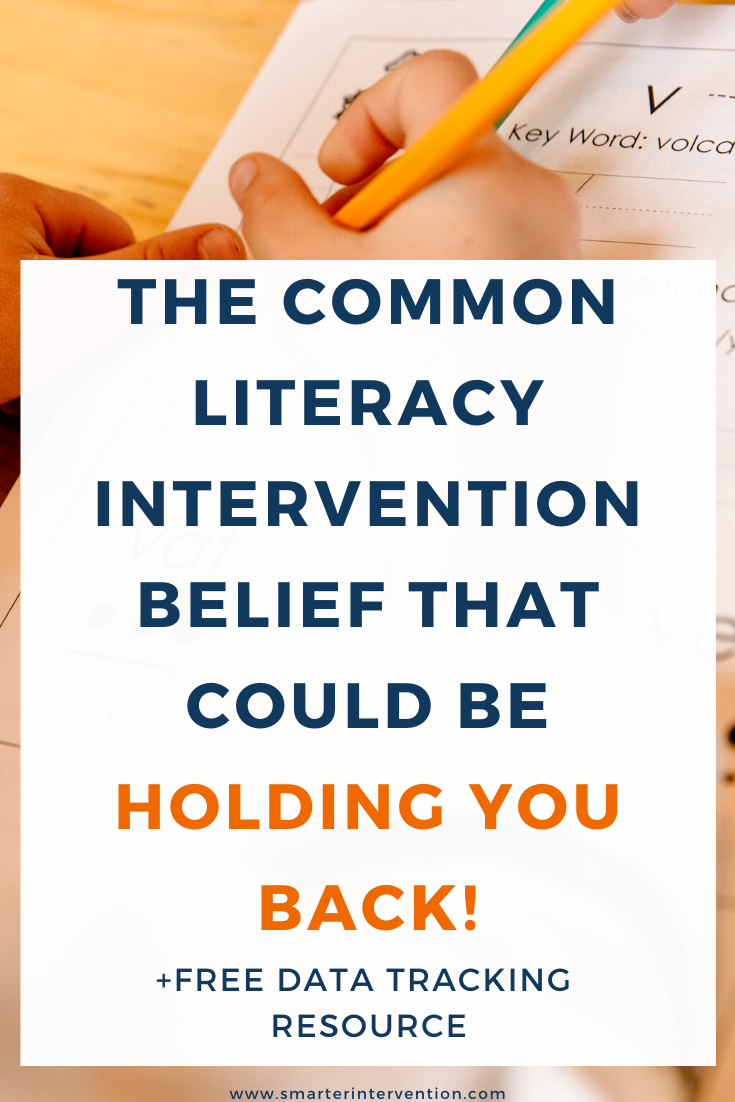The Common Literacy Intervention Belief that Could Be Holding You Back!
Hi friends,
We know that you want the best for your students. We know this because you are here.
In order to help make sure that there is nothing holding you back in your intervention, we wanted to address a common mistake we see in this field all. the. time.
Let’s talk about evidence-based literacy intervention programs.
Evidence-based, research-supported programs are CRITICAL to your intervention because they are backed by science and you can trust that they have data to support them.
That being said, they aren’t enough.
One of the biggest mistakes we have seen in this field is when well-meaning interventionists seek out an evidence-based approach or program and then follow it blindly.
When we follow a program without tracking our own data, we are saying that the program developers or curriculum writers know more about the child sitting in front of us than we do. Let’s be clear here - these program creators may be good at what they do. They may be extremely bright and have their own success, but they do not, can not, and will not ever know your students better than you do.
This is why it drives us crazy when we hear programs saying, “You have to do this with fidelity.” You know your students best, so you should be able to adjust to meet their needs.
By tracking data in your intervention, you can see what is landing for each child and what is not. No two children are the same and each child will have their own unique set of needs. While there are programs that can target literacy skills broadly and as a whole, the most effective interventionists are those who use these programs as a base and individualize their instruction within the framework of that program, based on the data they have collected and tracked throughout, to fit the needs of their students. Instead of just assuming it is working or following the program with fidelity, they look at their students and the data and adjust as needed.
Assuming a program, even an evidence-based program, works for all students…
…without tracking your own data and adjusting as needed, puts students at risk to continue falling through the cracks. These students are individuals. While the framework of the evidence-based intervention we use with them should remain the same, we need to be targeting our instruction within that framework to meet their individual needs.
Lucky for us - collecting data doesn’t have to be hard if you have the right tools.
If you are feeling overwhelmed at the thought of collecting data for each of your students…
or if you are rolling your eyes right now saying there NO way you can add this onto your already crazy-full plate…
or if you aren’t sure where to start…
we are here to tell you that we get it. We’ve all been there. We also want to tell you that with the right tools, data tracking doesn’t have to be complicated, it doesn’t have to take a ton of time, and it CAN ACTUALLY be really simple and effective.
>>Click here<< to check out the first blog in our data tracking series - How to Determine Which Data Needs to be Tracked and be sure to grab our free Data Tracking System. This tool will help make data tracking easy and help you keep your session data organized.

